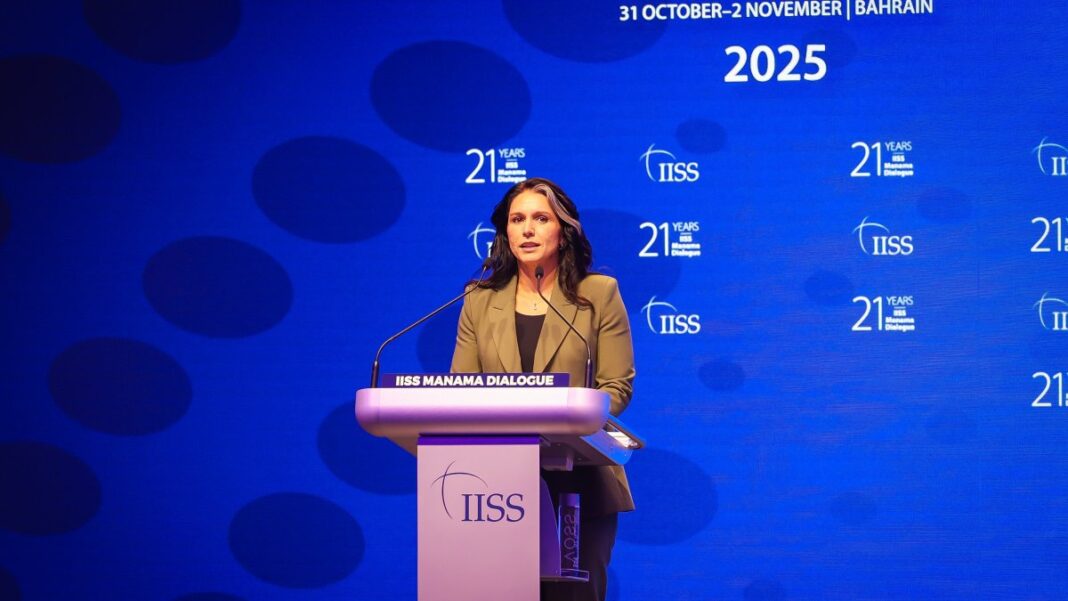U.S. Director of National Intelligence Tulsi Gabbard said Friday the United States has left behind decades of “regime change or nation-building,” describing a shift toward pragmatic diplomacy aimed at regional stability and shared economic interests, according to the Office of the Director of National Intelligence.
Speaking at the IISS Manama Dialogue, Gabbard argued past interventions squandered resources and created new risks, while the current approach prioritizes cease-fires, hostage releases, and de-escalation through direct talks. She pointed to efforts in the Middle East and other regions as evidence of an emphasis on security dividends through cooperation rather than open-ended military projects, the Office of the Director of National Intelligence said.
Her remarks echoed reporting that the administration views the “regime change” era as over, aligning its national security posture with transactional diplomacy and tighter focus on concrete outcomes, as reported by The Associated Press.
Gabbard framed the posture as “principled realism,” saying Washington will pursue “win-win” arrangements even with governments that do not share U.S. political systems—so long as interests align on counterterrorism, energy security, and trade. The Office of the Director of National Intelligence published the full transcript of her speech, delivered at the annual security forum hosted by the International Institute for Strategic Studies.
She also linked the strategy to an effort to “end wars that have defined too many generations,” arguing that sustained peace is a prerequisite for prosperity. The Office of the Director of National Intelligence added that her address highlighted recent cease-fire and de-escalation initiatives as examples of the approach
A global media for the latest news, entertainment, music fashion, and more.














